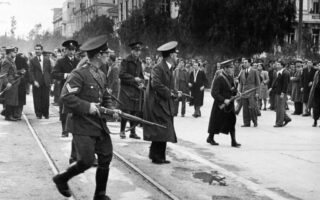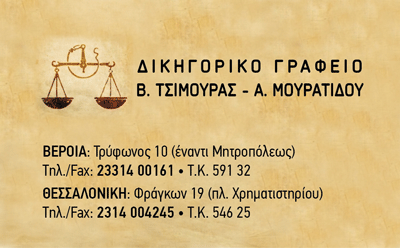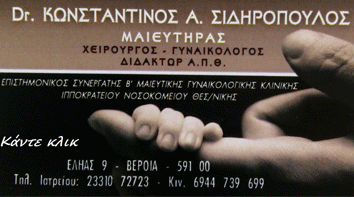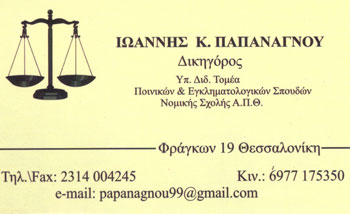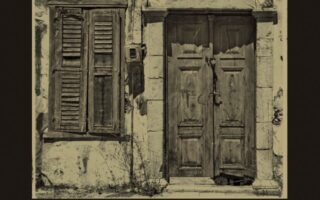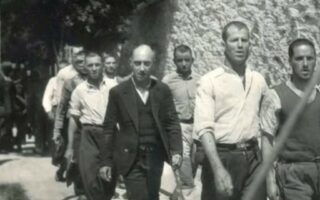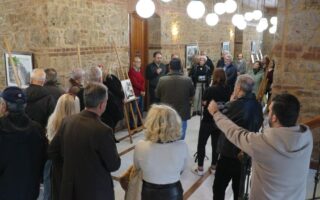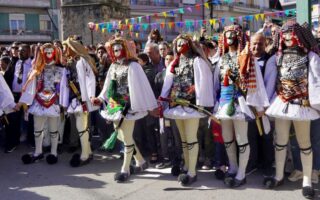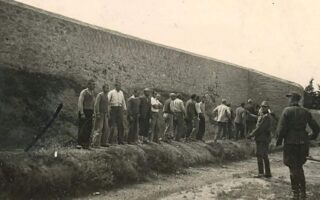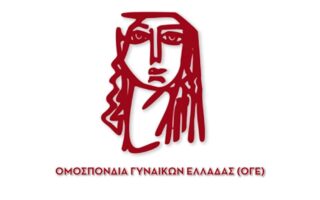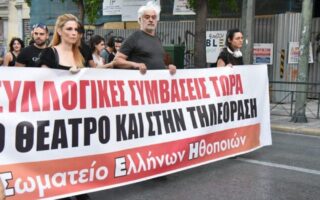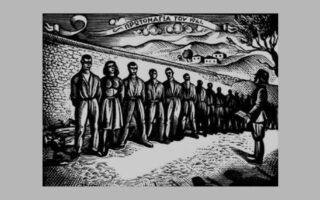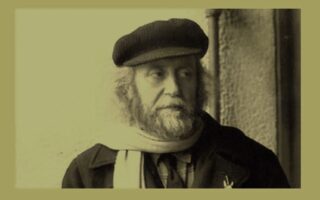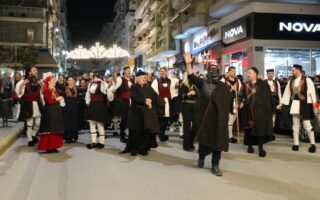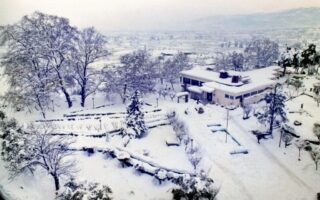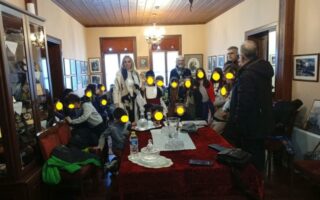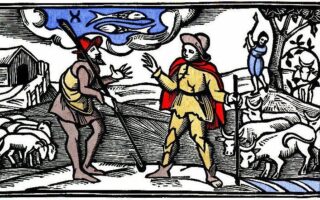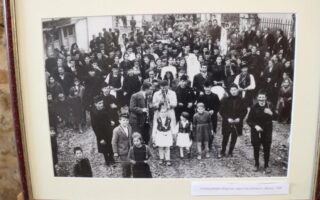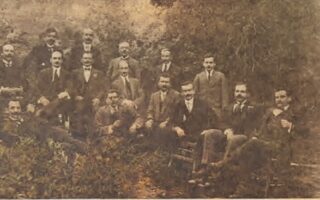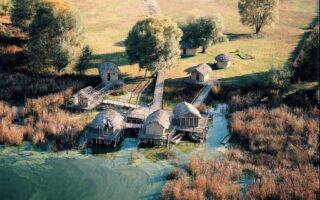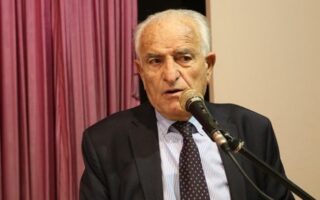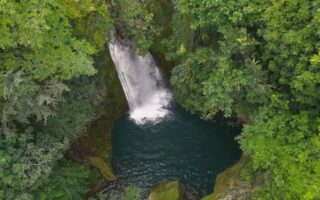Αναφορές και έγγραφα των Άγγλων διπλωματών για την επανάσταση στο Λιτόχωρο και τον Όλυμπο το 1878 / γράφει ο Σωτήρης Μασταγκάς
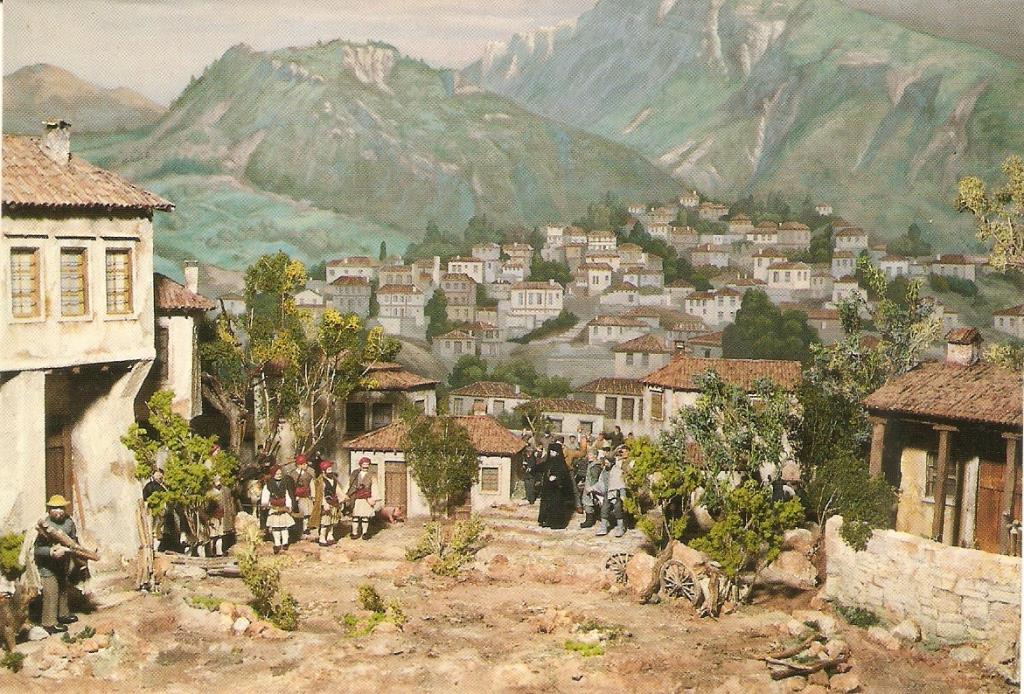
Η γνωριμία με την επανάσταση του 1878 στο Λιτόχωρο και τον Όλυμπο με ώθησε να αναδιφήσω από περιέργεια στα αρχεία του Foreign Office (Υπουργείο Εξωτερικών) του Ηνωμένου Βασιλείου. Έκπληξη και ικανοποίηση αισθάνεται ο ερευνητής, καθώς από τα ξενόγλωσσα αυτά έγγραφα αναδύονται πλούσιες πληροφορίες που συμπληρώνουν και τεκμηριώνουν τα γεγονότα
———-
Ο ΕΟΡΤΑΣΜΟΣ ΤΗΣ ΕΠΕΤΕΙΟΥ ΤΗΣ ΕΠΑΝΑΣΤΑΣΗΣ ΤΟΥ ΟΛΥΜΠΟΥ ΤΟ 1878
ACCOUNTS AND PAPERS 1878
Αναφορές και έγγραφα των Άγγλων διπλωματών για την επανάσταση στο Λιτόχωρο και τον Όλυμπο
γράφει ο
Σωτήριος Δ. Μασταγκάς*
 Η επανάσταση του 1878 έχει όλα τα χαρακτηριστικά των εξεγέρσεων του υπόδουλου Ελληνισμού εναντίον της Οθωμανικής Αυτοκρατορίας. Αξιολογείται ως σπουδαίο ιστορικό γεγονός από την άποψη ότι συνέβαλε στην επέκταση των ορίων της ελεύθερης Ελλάδας. Η έκρηξη του Ρωσοτουρκικού πολέμου στα 1877 προκάλεσε γενική κινητοποίηση στο κράτος των Αθηνών, με κύριο στόχο την προετοιμασία κινημάτων στις υπόδουλες ελληνικές επαρχίες. Ήδη στην Μακεδονία οι επαναστατικές ενέργειες εντείνονταν με πυρετώδη ρυθμό με την συνεργασία μητροπολιτών και Ελλήνων προξένων, οι οποίοι προετοιμάζονταν από το 1876 με τη συμπαράσταση της Μακεδονικής Επιτροπής των Αθηνών.
Η επανάσταση του 1878 έχει όλα τα χαρακτηριστικά των εξεγέρσεων του υπόδουλου Ελληνισμού εναντίον της Οθωμανικής Αυτοκρατορίας. Αξιολογείται ως σπουδαίο ιστορικό γεγονός από την άποψη ότι συνέβαλε στην επέκταση των ορίων της ελεύθερης Ελλάδας. Η έκρηξη του Ρωσοτουρκικού πολέμου στα 1877 προκάλεσε γενική κινητοποίηση στο κράτος των Αθηνών, με κύριο στόχο την προετοιμασία κινημάτων στις υπόδουλες ελληνικές επαρχίες. Ήδη στην Μακεδονία οι επαναστατικές ενέργειες εντείνονταν με πυρετώδη ρυθμό με την συνεργασία μητροπολιτών και Ελλήνων προξένων, οι οποίοι προετοιμάζονταν από το 1876 με τη συμπαράσταση της Μακεδονικής Επιτροπής των Αθηνών.
Στα μέσα Φεβρουαρίου του 1878 εκδηλώθηκε επαναστατικό κίνημα στον Όλυμπο με την άφιξη ατμόπλοιων στη θέση Σκάλα της παραλίας του Λιτοχώρου, την απόβαση ισχυρού σώματος 500 ανδρών και την κατάληψη του Λιτοχώρου. Οι κάτοικοι πρωτοστάτησαν στην επανάσταση και πλήρωσαν με πολύ βαρύ τίμημα τον πρωταγωνιστικό ρόλο και τη συμμετοχή.
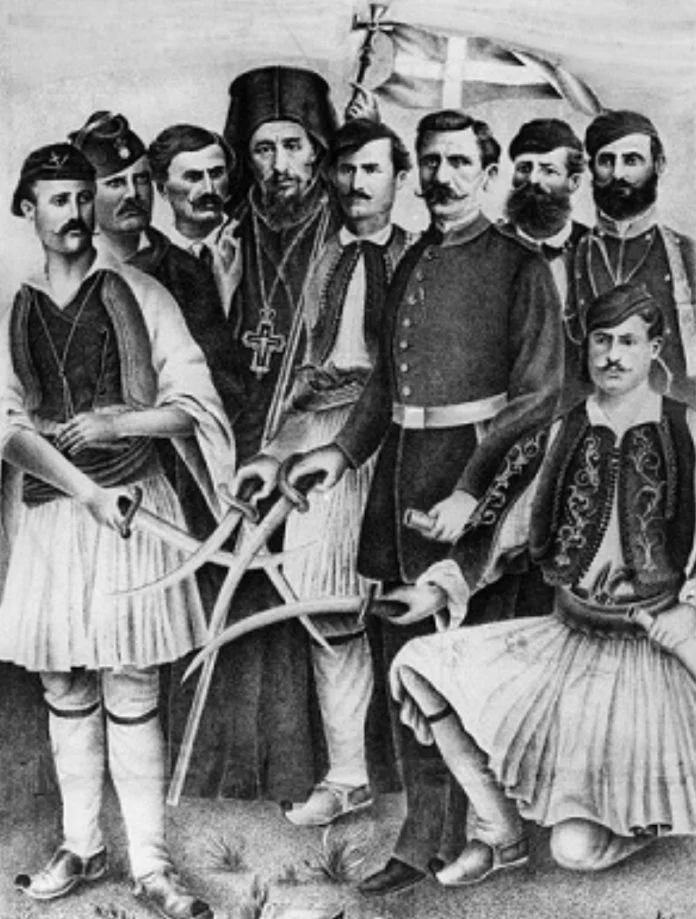
Τα γεγονότα και τα ιστορικά στοιχεία, που σχετίζονται με την εξέγερση στον Όλυμπο και την Μακεδονία, εκτέθηκαν κατά τη δεκαετία του 1960 κυρίως με εκδόσεις του Ιδρύματος Μελετών Χερσονήσου του Αίμου (ΙΜΧΑ) και της Εταιρείας Μακεδονικών Σπουδών (ΕΜΣ), από τα αρχεία του Υπουργείου Εξωτερικών και του Στέφανου Δραγούμη. Μέχρι σήμερα εκδόθηκαν ειδικές μονογραφίες, γράφτηκαν επιστημονικά άρθρα σε περιοδικά, ήρθαν στο φως ανέκδοτα απομνημονεύματα – χειρόγραφα και δημοσιεύτηκαν διάφορα ελληνικά αρχεία.
Η ιστορική μνήμη της επανάστασης του 1878 έχει αποκατασταθεί πλήρως με το άφθονο εκδοτικό υλικό και τις ειδικές εργασίες. Όμως, η ιστοριογραφία, όσο αποκαλυπτική κι αν είναι, πάντοτε αφήνει ανεξιχνίαστες πλευρές των γεγονότων. Υπάρχουν ιστορικές πτυχές που η έκθεσή τους είναι εξίσου σημαντική.
Η γνωριμία με την επανάσταση του 1878 με ώθησε να αναδιφήσω από περιέργεια στα αρχεία του Foreign Office (Υπουργείο Εξωτερικών) του Ηνωμένου Βασιλείου. Έκπληξη και ικανοποίηση αισθάνεται ο ερευνητής, καθώς από τα ξενόγλωσσα αυτά έγγραφα αναδύονται πλούσιες πληροφορίες που συμπληρώνουν και τεκμηριώνουν τα γεγονότα.
Στην παρούσα εργασία παρουσιάζονται 12 αντιπροσωπευτικά έγγραφα από τη δημοσιευμένη αλληλογραφία των Αγγλικών προξενικών αρχών που φωτίζουν την εξέγερση του 1878 στο Λιτόχωρο και τον Όλυμπο. «Accounts and Papers of the House of Commons. Great Britain. Parliament. House of Commons. 1878», ήτοι «Απολογισμοί και έγγραφα της Βουλής των Κοινοτήτων. Μεγάλη Βρετανία. Κοινοβούλιο. Βουλή των Κοινοτήτων. 1878». Οι εργασίες και τα έγγραφα που υπάρχουν στο Βρετανικό Κοινοβούλιο, από το έτος 1497 (!) μέχρι σήμερα, είναι δημοσιευμένες, ταξινομημένες με απόλυτη σειρά σε χιλιάδες έντυπους τόμους, με ψηφιοποιημένα ευρετήρια. Φυσικά στο διαδίκτυο υπάρχουν εκατοντάδες τόμοι για συγκεκριμένες χρονικές περιόδους, με ψηφιοποιημένα τα έγγραφά τους.
Η αλληλογραφία των Άγγλων διπλωματών (Κωνσταντινούπολη, Αθήνα, Θεσσαλονίκη), αξιωματούχων κλπ, δηλαδή τα αρχεία του Foreign Office αποτελούν σημαντική πηγή. Η έρευνα και μελέτη των διπλωματικών βίβλων της Αγγλίας δεν προσθέτουν κάτι το εντυπωσιακά νέο, επιδρούν όμως σημαντικά στη σκιαγράφηση της κατάστασης των υπόδουλων Ελλήνων του Ολύμπου, συνθέτοντας μια σύντομη έκθεση των γεγονότων.
Λίγα λόγια για τη στάση της Αγγλίας στο λεγόμενο Ανατολικό Ζήτημα. Αυτή εξαρτήθηκε από την γενικότερη πολιτική της και από τα συμφέροντα στα Βαλκάνια. Ενδιαφερόταν κυρίως για τα αποικιακά της συμφέροντα και επιδίωκε να διατηρήσει τον έλεγχο της Μεσογείου, μέσω της διατήρησης της εδαφικής ακεραιότητας της Οθωμανικής Αυτοκρατορίας, καθόσον αυτή αποτελούσε την αντίρροπη δύναμη στην ρωσική διείσδυση στην Μεσόγειο. Στόχος της πολιτικής της Αγγλίας ήταν η ανάσχεση της ρωσικής επέκτασης στα Στενά, μέσω των καλών σχέσεων με τον Σουλτάνο.
Η Αγγλία στη Συνθήκη του Αγίου Στεφάνου έβλεπε να απειλούνται άρδην τα συμφέροντά της στην περιοχή και να ανατρέπεται η ισορροπία των Μεγάλων Δυνάμεων στα Βαλκάνια. Διακήρυξε την αντίθεσή της και ενθάρρυνε την πρόταση να πραγματοποιηθεί το ευρωπαϊκό συνέδριο στο Βερολίνο, που θα επανεξέταζε ολόκληρο το πλέγμα των όρων της Συνθήκης του Αγίου Στεφάνου.
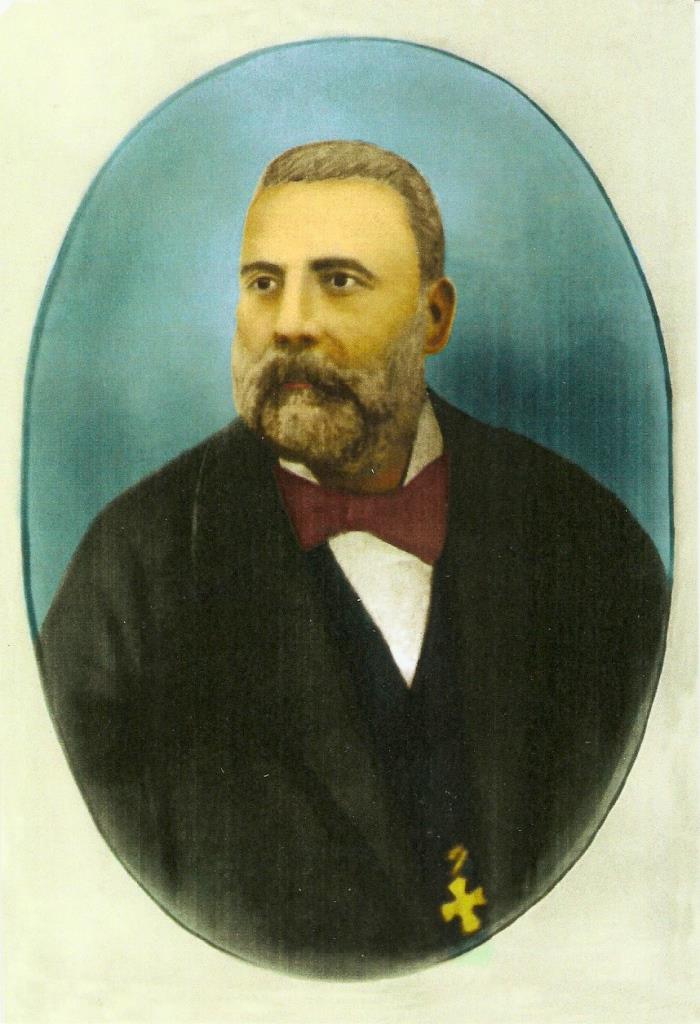
«Accounts and Papers: Thirty nine volumes. -38-. State papers, continue. Turkey, continued. Session 17 January – 16 August 1878. Volumes LXXXlll. 1878». Σε μετάφραση «Απολογισμοί και έγγραφα: Τριάντα εννιά τόμοι. -38ος ο παρών-. Κρατικά έγγραφα, συνέχεια. Τουρκία, συνέχεια. Συνεδριάσεις από 17 Ιανουαρίου μέχρι 16 Αυγούστου 1878. Τόμοι 833. 1878». Σ’ αυτή την διπλωματική βίβλο με απόλυτη χρονολογική σειρά και θεματικές ενότητες είναι καταχωρισμένες χιλιάδες αναφορές, επιστολές, τηλεγραφήματα, χάρτες, αποφάσεις κλπ που έχουν σχέση με τη Συνθήκη του Αγίου Στεφάνου, τί προηγήθηκε στα Βαλκάνια, τις εξεγέρσεις στον Όλυμπο, Μακεδονία, Θεσσαλία και Ήπειρο το 1878, το Συνέδριο του Βερολίνου κ.ά.
Ασφαλώς ως Λιτόχωρο μάς ενδιαφέρουν τα ξενόγλωσσα έγγραφα που αναφέρονται αποκλειστικά στην κωμόπολη και τον Όλυμπο. Στο εξώφυλλο ενός ξεχωριστού τομιδίου αναγράφεται: «Turkey. No 32 (1878). Correspondence respecting the insurrections in Thessaly and Epirus. Presented to both Houses of Parliament by Command of Her Majesty. 1878. London: Printed by Harrison and Sons», ήτοι «Αλληλογραφία με εκτίμηση (αναγνώριση) για τις εξεγέρσεις στην Θεσσαλία και Ήπειρο. Παρουσιάστηκε και στα δύο Σώματα του Κοινοβουλίου με εντολή της Αυτού Μεγαλειότητας. 1878». Στις 143 σελίδες του τομιδίου υπάρχουν κατά χρονολογική σειρά επιστολές, αναφορές, αλληλογραφίες, τηλεγραφήματα κλπ από την 11-2-1878, που άρχισε η συγκέντρωση των ενόπλων τμημάτων στην ελεύθερη Ελλάδα, μέχρι την 13-5-1878, που έγινε η ανακωχή και η κατάληξη της επανάστασης. Συνολικά 233 αριθμημένα έγγραφα και επί πλέον πολλά παραρτήματα (συνημμένα).
Υπόψη ότι οι ημερομηνίες στην αλληλογραφία των Αγγλικών προξενικών αρχών είναι με το Γρηγοριανό (νέο ημερολόγιο), ενώ την περίοδο εκείνη στην Μακεδονία και την ελεύθερη Ελλάδα ήταν σε χρήση το Ιουλιανό (παλαιό) ημερολόγιο. Ο αναγνώστης πρέπει να αφαιρεί 12 μέρες από τις ημερομηνίες των διπλωματικών εγγράφων, για να ταυτίζονται αυτές με τον γνωστό χρόνο των γεγονότων της επανάστασης.
Λίγες διευκρινήσεις για πρόσωπα και αξιώματα που αναγράφονται στα Αγγλικά έγγραφα:
Edward B. B. Barker: Διευθύνων το Προξενείο της Αγγλίας στην Θεσσαλονίκη.
- Hunt Grubbe: Πλοίαρχος του πλοίου Devastation, που απεστάλη για βοήθεια στους πρόσφυγες του Λιτοχώρου.
Hugh Wyndham: Άγγλος επιτετραμμένος στην Αθήνα.
Austen Henry Layard: Άγγλος πρεσβευτής στην Κωνσταντινούπολη.
Ιωάννης Γεννάδιος (Gennadius): Επιτετραμμένος της Ελληνικής πρεσβείας στο Λονδίνο.
Geoffrey Phipps Hornby: Vice Admiral (Αντιναύαρχος), αρχηγός του Στόλου της Μεσογείου.
Earl of Derby: Κόμης του Derby. Edward Henry Stanley, Υπουργός Εξωτερικών της Αγγλίας μέχρι την 1-4-1878.
Marquis of Salisbury: Μαρκήσιος του Salisbury. Robert Arthur Talbot Gascoyne-Cecil, Υπουργός Εξωτερικών της Αγγλίας από 2-4-1878.
Να πως έχουν ακριβώς στο πρωτότυπό τους 12 επιλεγμένα ενδεικτικά έγγραφα. Πριν από το κάθε ένα προηγείται μικρό ενημερωτικό σημείωμα.
1
Την 2 Μαρτίου 1878 από την Θεσσαλονίκη ο αναπληρωτής Πρόξενος Barker αναφέρει στον Layard, Άγγλο Πρέσβη στην Κωνσταντινούπολη, ότι στην περιοχή του Λιτοχώρου αποβιβάστηκαν Έλληνες εθελοντές, ότι ο Βαλής της Θεσσαλονίκης έστειλε σιδηροδρομικώς μικρή δύναμη στρατιωτών και ότι από τα Σκόπια αναμένονται δύο τάγματα Τούρκων στρατιωτών. Επίσης, κατά ανεπιβεβαίωτες πληροφορίες, και στη Συκιά της Χαλκιδικής αποβιβάστηκαν Έλληνες εθελοντές.
Acting Consul Barker to Mr. Layard
Salonica, March 2, 1878
I have the honor to report to your Excellency that on the 28th ultimo 600 Hellenic volunteers landed at a small port called Ei Thodoros, and proceeded to a village called Litokhoro, in the vicinity of Caterina, district of Mount Olympus.
They told the quarantine officer at Ei Thodoros to take his family and go to Salonica; and as soon as he had left they kicked the brazier of burning charcoal over and shut the door. Of course the house was burnt, and the adjoining premises, which contained much timber, were also burnt.
The authorities at Caterina telegraphed to the Vali at Salonica, and he sent 200 soldiers in a small steamer across the bay; these, with 100 more at Caterina, were insufficient to attack the volunteers, and therefore the Vali telegraphed to Constantinople for more troops.
Today, railway cars have been sent up, and will bring down two battalions of regular soldiers from Uscup in the night.
Yesterday morning, the 1st instant, more Hellenic volunteers were signaled as having arrived and landed at Sheekah, in the neighborhood of Cassandra, but their number is not yet known.
I have, &c.
(Signed) EDWARD B. B. BARKER
2
Ο Edward B. B. Barker, Άγγλος αναπληρωτής Πρόξενος της Θεσσαλονίκης, την 9-3-1878 υποβάλλει στην Αγγλική Πρεσβεία της Κωνσταντινούπολης το πρωτότυπο και μετάφραση στα αγγλικά τής από 19 Φεβρουαρίου 1878 Προκήρυξης της Επαναστατικής Κυβέρνησης της Μακεδονίας, η οποία συντάχθηκε στο Λιτόχωρο. Επίσης, γνωρίζει για τις κινήσεις των τουρκικών δυνάμεων και ότι επικεφαλής είναι ο Ασσάφ Πασάς με σκοπό να καταπνίξει την εξέγερση.
Acting Consul Barker to Mr. Layard
Sir, Salonica, March 9, 1878
I have the honor to transmit, herewith in closed, to your Excellency a Proclamation in the Greek language in original, together with a translation into English, which has been sent to me and to all the Consuls of European nations in this city from the insurgents in Mount Olympus, with a request that it may be forwarded to their respective Governments. I have kept a copy of the translation, which I shall have the honor of transmitting next post to Her Majesty’s Secretary of State.
His Excellency the Vali has sent 1,500 soldiers in a steamer on Wednesday last, the 6th instant, against these insurgents and “volunteers” (who have been joined by the bandits in Mount Olympus), and tomorrow two battalions more will leave with the Commander, Asaf Pasha, and some field pieces. This Asaf Pasha has just come down here by railway, with nearly all the troops who were at “Uscup” and “Mitrovitsa”, and they are being sent on, some to quell the insurrection in Mount Olympus, and others that in Thessaly, on Mount Pelion. (…)
I have, &c.
(Signed) EDWARD B. B. BARKER
Proclamation of the Insurgents in Mount Olympus
(Translation from the Greek)
To the Honorable Governments of the European Powers.
The many year old wrongs-wrongs latterly greatly aggravated, with which honorable Governments have from time to time been made acquainted by their representatives, have compelled the inhabitants of Macedonia to have recourse to arms, for the protection of their lives, their honor, and their property.
The representatives of the various communities of Macedonia having assembled this day, have overthrown the tyrannical power of the Sultan, and have proclaimed the annexation of Macedonia to the motherland of Greece, and have chosen us for the establishing of the provisional Government of the revolution empowering us to address ourselves to the Christian Powers, for the purpose of soliciting their powerful protection of our righteous warfare, as well as their compassion on behalf of our wives and children, imperiled by Turkish savagery.
We feel confident that the watchfulness of the European Powers over the future of the East will be extended to the whole of Macedonia, a country ready for the enjoyment of her liberty, and for union with her motherland Greece; ready also to deliver herself up, if necessary, to the flames of fire and perdition, rather than remain under the abominable Power that has for administration precept the profanation by Circassians, Gheghas, Ziebecks, and Bashi-Bazouks, of our honor, and the sanctity of our hearts.
All the obligations and all the promises that the Government undertook to fulfill on behalf of its subjects and towards the Great Powers have proved to be intentionally false and deceitful. The Turkish Government has several times granted civil rights, but tyranny is unrelaxing, and the burden of our calamities seems to be endless and more and more unbearable, inasmuch as the said Government is in dissolving and vanishing condition.
For these reasons we have been obliged to take up arms, in order to be allowed to die as men and Greeks, if we are not permitted to live as free and rational beings.
Litochoro (Olympus), February 19, 1878
(Signed) E. I. COROVANGO, President
- ASTERIOU
- B. ZACCARIADI
Rev. NIKIFORO of the Monastery of Petra
Rev. ATHANAS GIORGIONE
JOHN G. STERGHIDI
JOHN NICHOLAS
We pray the Consul of England in Salonica to forward the same to the Government that he so worthily represents.
3
Την 25 Μαρτίου 1878 από την Θεσσαλονίκη ο πλοίαρχος του αγγλικού πλοίου Devastation ενημερώνει τηλεγραφικώς το Ναυαρχείο του ότι δεν υπάρχουν πρόσφυγες κοντά στις ακτές του Ολύμπου και ότι κατάφυγαν σε μοναστήρια.
Captain Hunt Grubbe to the Secretary to the Admiralty
(Telegraphic).
“Devastation,” Salonica, March 25, 1878, 5:35 P.M.
Have examined coast near Olympus. No signs of fugitives. Am informed they have taken refuge in monasteries inland.
———————————-
Παλαιότερη συνέντευξη του Σωτήρη Μασταγκά στη Δήμητρα Σμυρνή για τη Φαρέτρα
Ο *Σωτήρης Μασταγκάς είναι Νομικός, Υποστράτηγος εα, ιστορικός ερευνητής της Τοπικής Ιστορίας του Λιτοχώρου
——————————-
4
Από την Θεσσαλονίκη, στις 17-3-1878, το Αγγλικό Προξενείο ενημερώνει τον A. H. Layard, Άγγλο Πρέσβη της Κωνσταντινούπολης, για τις κινήσεις των εξεγερμένων Ελλήνων, τον Δουμπιώτη, τον επίσκοπο Κίτρους Νικόλαο Λούση κλπ. Αναφέρει ότι ο Ασσάφ Πασάς έκανε αρχηγείο των στρατευμάτων του την Κατερίνη και ότι «η πόλη του Λιτοχώρου εθεάθη από την Θεσσαλονίκη να καίγεται».
Acting Consul Barker to Mr. Layard
Sir, Salonica, March 17, 1878
I have the honor to report to your Excellency that the news of the taking of the small fortress of Platamona by Doumbiotti, the Chief of the insurgents in Mount Olympus, has been confirmed. This Platamona (the ancient Heraclion) had only three cannons and 10 soldiers in garrison.
As soon as the Greeks under Doumbiotti had landed and gone to Litochoro, near Caterina, two small bands of robbers, about thirty men in all, united together under a Chief, Evanghelee, and augmented by other insurgents, proceeded to the village of Colindro, seat of the Bishop of Kitros, and compelled all the villagers in their neighborhood to bring their families to Colindro, and the Bishop to give them, and the standard of the revolution, his benediction. (…)
The brigands and volunteers, finding themselves only 150, set off with the women and children to Aghios Pantas in the mountains, setting fire and burning down the Bishop’s premises and the church adjoining.
Assaf Pasha, leaving a garrison of 1,000 soldiers at Colindro, went with Feteem Bey and three cannons to Kitros, and from thence to Caterina, which has been made the head-guarders of the troops.
Nothing has been heard of the 600 (or more) volunteers who landed at Saint Theodoros; it is said they are in parts of the mountains inaccessible to regular troops.
Assaf Pasha, on arriving at Caterina, was presented with petitions from the Mahommedan and Christian population, seeking redress and protections from the Circassians and Ghegha Albanians, who have, on the pretext of suppressing the insurrection, but without any authority, pillaged and killed several persons, saying that if prompt measures be not taken to repress them, the whole country will be obliged to take up arms and defend themselves.
They attacked and plundered the estate of G. Bitsio, Dragoman of this Consulate, at Kitros, and at Ajannides, carried off 109 horses and mules, and burnt eighty huts belonging to his Wallachian shepherds. The post leaving in an hour prevents my sending your Excellency details of these excesses.
This was done just before Assaf Pasha arrived at the estate, where he slept one night, and he saw and heard the “viva voce” complaints of the peasants, whom he found loyal to the Government, in spite of the incitement and others of the Bishop of Kitros. (…)
Great complaints are made against the irregular troops, but not the regulars, and I shall have the honor of sending the particulars by next post.
The town of Litochoro has been seen burning from Salonica; particulars not yet received.
I have, &c.
(Signed) EDWARD B. B. BARKER
5
Την 22-3-1878 ο Hugh Wyndham, Άγγλος επιτετραμμένος στην Αθήνα, αναφέρει στον Κόμη του Derby, Υπουργό Εξωτερικών της Αγγλίας, για τις λεηλασίες, σφαγές και καταστροφές που διέπραξαν οι Τούρκοι στα χωριά Ραψάνη, Καρυά και Λιτόχωρο του Ολύμπου. Προτείνει όπως το πλοίο Wizard που βρίσκεται στον Πειραιά, να κατευθυνθεί στις ακτές του Ολύμπου για να περιθάλψει τους άστεγους και πρόσφυγες.
Mr. Wyndham to the Earl of Derby. – (Received April 3)
My Lord, Athens, March 22, 1878
With reference to my preceding dispatch of today’s date, I have the honor to report to your Lordship that Th. Delyanni, Minister for Foreign Affairs, called upon me this afternoon, and read to me a telegram he had received from the Greek Vice–Consul at Volo, stating the Turks had pillaged and destroyed the Thessalian villages of Papsani, Karya, and Litochoria, near Mount Olympus; that they had massacred old men, women, and children; and that some families who had escaped had fled to the mountains, where they must, unless rescued, inevitably perish of hunger.
Mount Olympus not being far from the sea–coast, it occurred to me that one of Her Majesty’s ships might be able to communicate with the fugitives, and perhaps convey them to a place of safety, and as Her Majesty’s ship “Wizard” is now lying at the Piræus, and as there is no urgent necessity for her services there, I mentioned her in my telegram as available in case of need, and in the event of Vice–Admiral Hornby having no other vessel at his disposal to send to the coast of Thessaly if required.
I have, &c.
(Signed) HUGH WYNDHAM
6
Ο Άγγλος Πρέσβης της Κωνσταντινούπολης ενημερώνει την 26-3-1878 το Υπουργείο Εξωτερικών (Earl of Derby) στο Λονδίνο για τον κίνδυνο που διατρέχουν οι άμαχοι πληθυσμοί του Ολύμπου, ότι αν και κατέφυγαν σε μοναστήρι κινδυνεύουν από τους Τούρκους και κλπ. Γνωρίζει ότι το αγγλικό πλοίο Ruby κατευθύνεται στις ακτές της περιοχής για να περιθάλψει τους πρόσφυγες.
Mr. Layard to the Earl of Derby. – (Received April 5)
My Lord, Constantinople, March 26, 1878
I received last week from Consul Barker a telegram informing me that irregulars had been sent against a monastery in Mount Olympus where women and children had taken refuge. I immediately brought the matter to the notice of the Prime Minister, who at once telegraphed to the Vali of Salonica on the subject. The Vali has replied that the statement is entirely without foundation. Nevertheless, His Highness tells me that orders have been sent to the local authorities to prevent anything of the kind happening.
I also informed Admiral Hornby of the substance of Barker’s telegram, and he at once gave orders for Her Majesty’s ship “Ruby” to proceed to the coast of Thessaly to afford any protection that might be required to Christian Fugitives.
I have, &c.
(Signed) A. H. LAYARD

7
Από την Θεσσαλονίκη την 23-3-1878 ο αναπληρωτής Πρόξενος Barker ενημερώνει τον A. H. Layard, Άγγλο Πρέσβη στην Κωνσταντινούπολη, ότι μετά την πυρπόληση του Λιτοχώρου, ο οπλισμός που βρέθηκε μεταφέρθηκε στην Θεσσαλονίκη και τα χωριά του Ολύμπου δήλωσαν υποταγή στον Ασσάφ Πασά.
Acting Consul Barker to Mr. Layard
Salonica, March 23, 1878
I have the honor to inform your Excellency that a Government man of war has brought here about 300 or more rifles, and some boxes of cartridges, found in Litochoro after the insurgents had left the town, and a part of it burnt by the soldiers; and I have been informed by his Excellency the Vali that the villagers in the district near Mount Olympus have mostly made submission to Asaf Pasha, and begged he would protect them against the insurgents (volunteers), who threaten to burn down their villages if they do not join them.
I have, &c.
(Signed) EDWAD B. B. BARKER
8
Την 26-3-1878 ο αναπληρωτής Πρόξενος της Θεσσαλονίκης ενημερώνει τον Άγγλο Πρέσβη της Κωνσταντινούπολης ως προς την αποστολή του πλοίου Devastation στις ακτές του Ολύμπου και τις διαβεβαιώσεις που έλαβε από τον Τούρκο Γενικό Κυβερνήτη της Θεσσαλονίκης. Δηλαδή, για την ανοικοδόμηση του Λιτοχώρου οι Τούρκοι θα δώσουν βοήθεια και θα αντικατασταθούν οι τοπικές αρχές της Κατερίνης. Αν η επανάσταση συνεχιστεί, θα υπάρξουν περαιτέρω συνέπειες.
Acting Consul Barker to Mr. Layard
Sir, Salonica, March 26, 1878
I have the honor to report to your Excellency that Her Majesty’s turret-ship “Devastation” arrived here yesterday from the opposite coast, whither she had gone, by telegraphic instructions from the Admiralty in England, to relieve the fugitive families from the villages destroyed near Mount Olympus.
Captain W. Hunt-Grubbe, commanding her, not having seen any refugees on the beach, because they had retired to the mountains inland, came here, and I accompanied him to the Palace, on a visit to the Governor-General, who informed us that the population of Litochoro, which large village had been partially burnt, had returned to it, and that he had taken measures to relieve the necessitous part of the population, both Mussulman and Christian, by providing them with timber to rebuild their houses, and with firewood and provisions; for which object his Excellency had removed the Mudir of Caterina, and appointed another in whom he had confidence, that he would carry out his orders. Notwithstanding this, he intended sending another person again with stricter instructions.
His Excellency also assured us that there were now no other villagers whose houses had been burnt near Caterina, because they had all submitted; but he would not guarantee what might take place again [if the insurrection continued to spread] in other villages to which the troops of the Sultan would go to suppress it.
That 2,840 rifles and 1,500 cases of cartridges, and much pig lead, which had been landed by Hellenes, had been seized by a Turkish gunboat and brought here. (…)
I have, &c.
(Signed) EDWARD B. B. BARKER
9
Την 3/15-3-1878 ο Θεόδωρος Δεληγιάννης, Υπουργός Εξωτερικών της Ελλάδας, αποστέλλει στον Ιωάννη Γεννάδιο, διπλωμάτη και Έλληνα επιτετραμμένο στο Λονδίνο, επιστολή που προωθήθηκε την 10-4-1878 στον Μαρκήσιο του Salisbury, Υπουργό Εξωτερικών της Αγγλίας. Η επιστολή αναφέρεται στην επανάσταση της Μακεδονίας και του Ολύμπου, τα δεινά που υφίστανται από τους Οθωμανούς οι υπόδουλοι Έλληνες και ότι θα συνεχιστούν οι εξεγέρσεις. Το κείμενο είναι στην γαλλική γλώσσα, όπως και η Προκήρυξη της Προσωρινής Επαναστατικής Κυβέρνησης της Μακεδονίας της 19-2-1878, που είναι συνημμένη στην αλληλογραφία και για την οποία «Vous êtes autorisé à en faire l’usage que vous jugeriez nécessaire». Παραθέτω μόνον την Προκήρυξη.
Proclamation of the Provisional Government of Makedonia
(Traduction)
Aux Gouvernements des Puissances Européennes,
Les maux dont souffrent, depuis une longue série d’années, les habitants de la Macédoine, et done les Gouvernements Européens ont eu connaissance à différents époques par la voie de leurs Agents, ont pris dernièrement une telle intensité, que les habitants sus-mentionnés ont dû prendre les armes pour protéger leur vie, leur honneur et leurs biens.
Les représentants des différents districts de la Macédoine s’étant réunis aujourd’hui, ont proclamé la déchéance du pouvoir tyrannique du Sultan et l’annexion de la Macédoine à la Grèce, et en même temps ils nous ont choisis pour former le Gouvernement Provisoire Insurrectionnel avec le mandat de nous addresser aux Puissances Chrétiennes, afin de démander leur puissante protection en faveur de notre lutte et de recommander à leur sollicitude nos femmes et nos enfants qui sont en butte à la férocité Musulmane. Nous sommes convaincus que l’intérêt témoigné par les Cabinets Européens pour l’avenir de l’Orient sera étendu sur toute la Macédoine.
Les habitants de la Macédoine sont prêts à subir les plus grands sacrifices pour conquérir leur liberté et leur union avec la Grèce, leur mère. Ils préfèrent une lutte à outrance plutôt de continuer à dépendre de ce pouvoir infame dont les organes qui ne sont autres que les Circassiens, Guégues, Zéibeks, et Bachi-Bazouks, ont ruiné notre partie, attaqué notre honneur, et profané la saintété de notre foyer domestique.
Toutes les promesses et toutes les obligations que le Gouvernement Ottoman a assumées vis-à-vis de ses sujets et des Grandes Puissances ont été reconnues fausses et fallacieuses.
Des droits ont été octroyés, plusieurs fois, mais l’arbitraire et l’oppression ne se sont nullement relâchés. Bien au contraire, nos maux deviennent de jour en jour plus terribles et nous n’en voyons pas le terme.
Par tous ces motifs, nous sommes vus dans la nécessité d’avoir recours aux armes, décidés à mourir comme hommes et comme Hellènes si l’on ne nous permet pas de vivre comme des hommes libres.
A Litochori d’Olympe, 19 Février, 1878
Le Gouvernement Provisoire de la Macédoine,
(Signé) KOROVANGO Président
(Suivent les autres signatures et le sceau du Gouvernement)
10
Από την Θεσσαλονίκη την 30-3-1878 ο αναπληρωτής Πρόξενος Barker ενημερώνει τον Layard, Άγγλο Πρέσβη στην Κωνσταντινούπολη, για τις κινήσεις του πλοίου Devastation και τις προθέσεις να πάει στον Άγιο Θεόδωρο (Σκάλα) του Λιτοχώρου να μεταφέρει πρόσφυγες. Ο Τούρκος διοικητής της Θεσσαλονίκης δίνει υποσχέσεις για βοήθεια. Επίσης στην αναφορά υπάρχουν πληροφορίες για τις στρατιωτικές δυνάμεις των Τούρκων.
Acting Consul Barker to Mr. Layard
Sir, Salonica, March 30, 1878
I have the honor to report to your Excellency that Her Majesty’s ship “Devastation” left this port this afternoon for Besika Bay, on receiving a telegraphic summons from Admiral Hornby. Before leaving, Captain Hunt Grubbe, C. B., requested me to write to his Excellency the Vali to say he was ready to go to the Scala, Aghio Todoro, or elsewhere, and bring away the fugitive families, provided they would come down to the beach; and his Excellency has replied to me, thanking Her Majesty’s Government for its philanthropic intentions, but that he had permitted the coming of the families to Salonica, and had sent two steamers to relieve the necessitous among them, and take others away.
A small steamer did leave yesterday with sacks of flour and other provisions, but whether for the soldiers or the women and children it is impossible to say.
A large Turkish man-of-war left also yesterday with 2,000 soldiers for Volo. There are said to be about 30,000 men in Thessaly at this moment. We have here about 10,000, and there are about 6,000 at Mount Olympus or in its vicinity. (…)
I have, &c.
(Signed) EDWAPD B. B. BARKER
11
Ο καπετάνιος W. Hunt Grubbe του πλοίου Devastation κάνει αναλυτική αναφορά για το χρονικό διάστημα 24-31 Μαρτίου 1878 ως προς τον πλου και την αποστολή του πλοίου που είχε σχέση με την επανάσταση του Ολύμπου. Η αναφορά του γράφτηκε στην Besika Bay, που είναι όρμος στην ακτή της Τροίας στην Ασιατική Τουρκία. Απευθύνεται στον Αντιναύαρχο G. Phipps Hornby, που βρίσκεται στην Σμύρνη με το πλοίο Alexandra. Αυτός με τη σειρά του προωθεί την αναφορά στους ανωτέρους του στο κεντρικό Ναυαρχείο.
Captain Grubbe to Vice-Admiral Hornby
Sir, “Devastation”, Besika Bay, March 31, 1878
- I have the honor to report my proceeding since the 24th instant, on which day I left Besika at moderate dispatch to carry out orders received by the Senior Officer from Admiralty to send a vessel to relieve fugitives from villages destroyed near Mount Olympus.
- At daylight on the 25th instant I commenced making a careful search of the coast from Platamona to Katerina Scala but saw nothing, except at the latter place, which appeared to be full of Turkish soldiers.
- It was impossible to land owing to the heavy sea running on the steep beach caused by southerly winds; and having communicated with a Turkish corvette cruising off Platamona I proceeded to Salonica.
- Her Majesty’s Consul at that port was not able to give me much reliable information on the subject; but from him and from the Consul-General of Greece I gathered that about 600 families from the village of Litochoro had fled into the mountains before the Turkish troops had burnt their houses, consequently they were able to carry provisions for immediate use with them.
- Only a portion of this village was burnt, viz., that part which had been occupied and strongly in trenched by the insurgents. They had a strong position at the foot of a hill about 400 feet in height; and this hill burning at the same time as their houses in the entrenchments was distinctly visible from Salonica, and gave rise to apprehensions that the villages in that immediate neighborhood were totally destroyed.
- On the 26th instant I called on Ibrahim Pasha, the Governor-General, and requested that these fugitives might be permitted to come to Salonica, where their friends and countrymen were ready to receive them; but be objected to this on account of the town being already full to overflowing with disbanded troops and irregulars of all descriptions who were being sent to Smyrna by every opportunity, and also because typhus fever and small-pox were prevalent in the Greek quarter. He, however, sent a Special Commissioner down at once to desire the people to return to their village, and gave instructions, in the presence of myself and the Consul, that their wants should be attended to.
- At this very time 2,400 stands of arms and 800 boxes of ammunition were landed by a privateer in the vicinity of Platamona, and were taken by the Turkish corvette “Edrine”. These were intended for the use of the males of Litochoro, and had they arrived sooner, the capture of the position held by the insurgents would not so easily have been effected. (…)
- On the 27th instant about sixty of the people of Litochoro arrived and described the inhabitants as unable to obtain food, the village being surrounded by a cordon of troops; but, doubtless, this was part of the precaution taken by the General commanding to prevent the rifles and ammunition reaching their destination; as, on the 28th, permission was given, at our earnest solicitation, for those who wished to come to Salonica to do so; and I immediately addressed a letter to his Excellency though the Consul thanking him for this and offering to procced at once to assist in embarking them; but to this I had, up to the time of my leaving, received no answer, probably on account of there being no business transacted at the konak on Friday.
- The Governor-General, however, on the 29th instant, visited the ship, when I repeated my satisfaction at the step he had taken, and shortly after he left, a gun-boat proceeded to the neighborhood of Mount Olympus laden with provisions and carrying a Special Commissioner to attend to the requirements of the fugitives. (…)
I have, &c.
(Signed) W. HIND GRUBBE
……………………………………………………………………….
“Alexandra”, at Ismir, April 9, 1878
Forwarded for the information of the Lords Commissioners of the Admiralty.
(Signed) G. PHIPPS HORNBY,
Vice-Admiral, and Commander-in-chief
12
Ο αναπληρωτής Πρόξενος Edward B. B. Barker την 6-4-1878 με επιστολή του από την Θεσσαλονίκη προς τον Άγγλο Πρέσβη της Κωνσταντινούπολης A. H. Layard, πληροφορεί για την άφιξη στην πόλη του περισσότερου πληθυσμού του Λιτοχώρου και την προσπάθεια να ανακουφιστούν από τις ταλαιπωρίες. Οι Λιτοχωρινοί και η ελληνική κοινότητα της Θεσσαλονίκης ευχαριστούν την Αγγλική κυβέρνηση για τη βοήθεια που παρέχει.
Acting Consul Barker to Mr. Layard. – (Received at the Foreign Office, May 3)
Salonica, April 6, 1878
The greater part of the population of Litochoro have come here, and some are still coming.
A deputation of the Greek community, headed by the Greek Consul-General, went on board the “Devastation”, and prayed the Commander, Hunt Grubbe, C. B., to thank Her Majesty’s Government for the solicitude and interest evinced in sending her and the “Ruby” to Volo, in the hope of relieving the distressed Greek Families whose houses have been burnt.
Another deputation has come to thank me for the efforts I made and the trouble I took to persuade the Governor-General to allow the starving population of Litochoro to come here and seek food and shelter from the cold in that ruined village, and from the terrors of the military and the mob of fanatics with them.
P.S. –Should any other man-of-war be sent to relieve or take away refugees, the Commander ought to be instructed to wait until the families could be communicated with and have time to come down to the coast.
I have, &c.
(Signed) EDWARD B. B. BARKER







